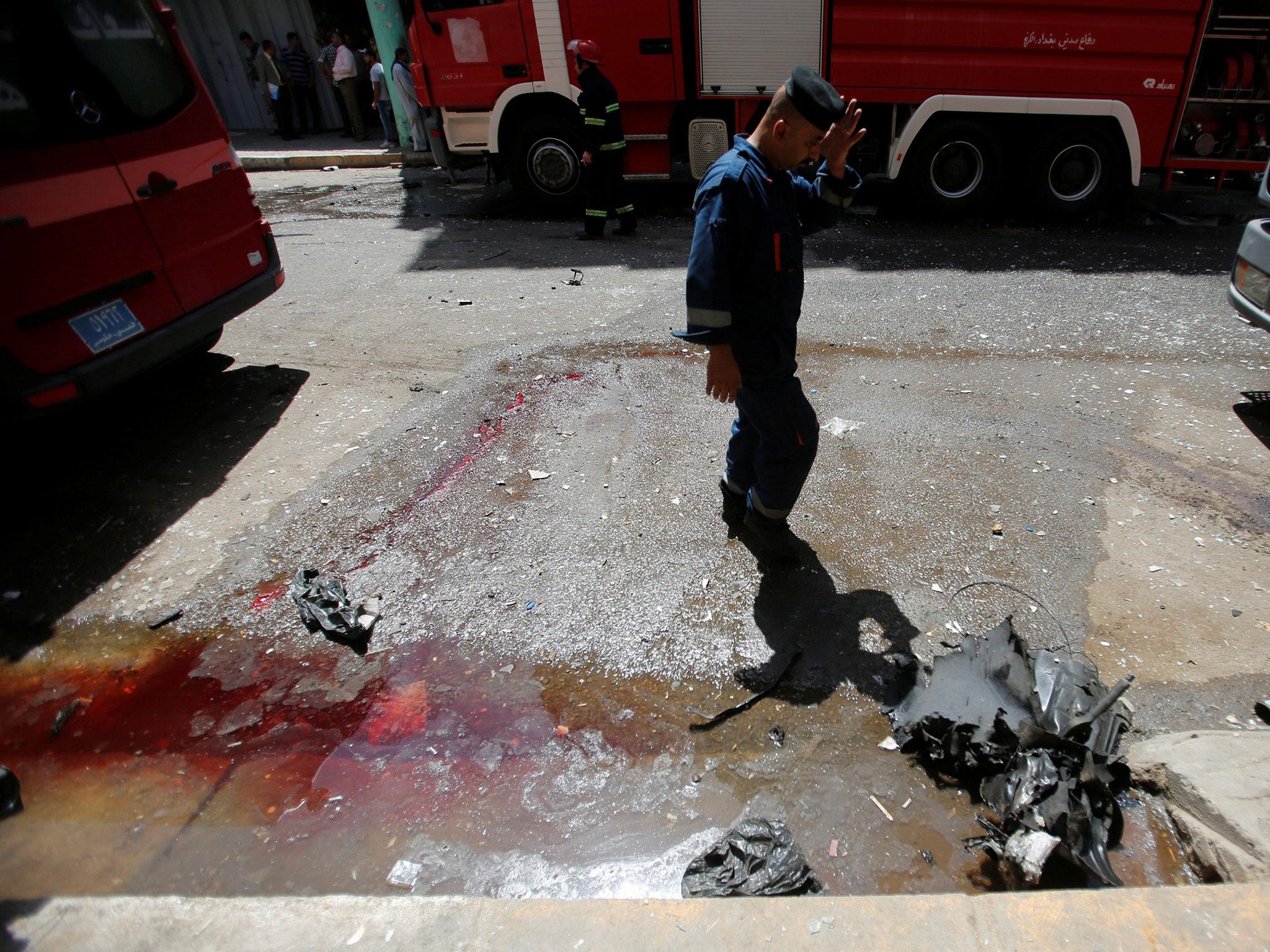As Isis massacres families enjoying ice cream in Baghdad, this Ramadan could be even bloodier than previous years
Isis and al-Qaeda are being squeezed in their core territories, and so lashing out with terrorist atrocities

Your support helps us to tell the story
From reproductive rights to climate change to Big Tech, The Independent is on the ground when the story is developing. Whether it's investigating the financials of Elon Musk's pro-Trump PAC or producing our latest documentary, 'The A Word', which shines a light on the American women fighting for reproductive rights, we know how important it is to parse out the facts from the messaging.
At such a critical moment in US history, we need reporters on the ground. Your donation allows us to keep sending journalists to speak to both sides of the story.
The Independent is trusted by Americans across the entire political spectrum. And unlike many other quality news outlets, we choose not to lock Americans out of our reporting and analysis with paywalls. We believe quality journalism should be available to everyone, paid for by those who can afford it.
Your support makes all the difference.Ice cream and blood mingle on the floor after a bomb exploded outside an ice cream shop in the Karada district of Baghdad as people broke their fast during the first day of Ramadan.
A bewildered young girl wanders through the wreckage, past the smashed yellow tables and benches where at least 26 people have just been been killed and dozens injured by an Isis bomber.
Bombings are usually worse in Baghdad in Ramadan, but they never stop during the rest of the year. Last year in Ramadan some 340 civilians were killed in the explosion of a single car in Baghdad.
Loss of life is all the greater because crowds of people are walking the streets after eating in the comparative cool of the evening.
This year the slaughter of civilians may be even worse than in the past in Iraq and Syria because Isis is losing the two largest urban centres still partly held by its fighters.
After six months of savage street fighting, Isis are penned back into part of the Old City in Mosul where the close-packed buildings and alleys, so narrow that two people cannot walk abreast, are ideal for Isis guerrilla fighters.
The largest Isis stronghold in Syria, Raqqa on the Euphrates, is isolated by Kurdish-led forces backed by US airpower.
Isis is on the retreat as is al-Qaeda in its different guises, but neither group is going out of business and they still have several tens of thousands of fanatical and experienced fighters.
Keep in mind that the Iraqi and Syrian armies, the main military forces fighting Isis, along with the Syrian and Iraqi Kurds, are all short of combat troops so it is difficult for them to consolidate their victories on the ground. Isis has suffered heavy losses in fighters and territory, but it can return to guerrilla warfare combined with systematic terrorism at home and abroad.
From the Isis point of view the future is not entirely bleak. They are still able to sow fear by murdering civilians, mostly Shia and Christians, from Manchester to Baghdad and beyond.
Their name is on every lip, even if it is being execrated. Moreover, Isis and al-Qaeda have always relied on the internecine hatreds of their enemies to help them survive as much as their own strength.
Donald Trump’s trip to Saudi Arabia and Israel has aided them by exacerbating the struggle between Sunni and Shia and Saudi Arabia and Iran.
Paradoxically, Isis at the height of its strength in 2014/15, after it had captured Mosul, so frightened all whom it targeted that it imposed a degree of unity or at least non-belligerence on its diverse enemies.
As Isis is perceived to weaken, its opponents become less terrified and recall other grievances against other rivals.
The Iraqi government and the non-Kurds of Iraq recall that the Kurds took advantage of the initial Isis victories in 2014 to grab territories long disputed between Kurds and Arabs.
In Syria, there is likewise a race by all parties and their foreign sponsors to over-run territory in eastern Syria previously held by Isis.
As Ramadan begins there is little expectation of violence receding in much of the Muslim world.
Nation states remain weak and there is an escalation of sectarian differences in places where warfare has faded from the new agenda such as in the southern Philippines.
Some episodes, like the Saudi security forces siege the Shia town of Awamiya in eastern Saudi Arabia and escalating clashes in Bahrain are little reported. In Yemen lack of clean water has led to 52,000 cases of cholera and 471 dead from the disease.
These wars may ebb and flow, but there is little sign of peace returning.